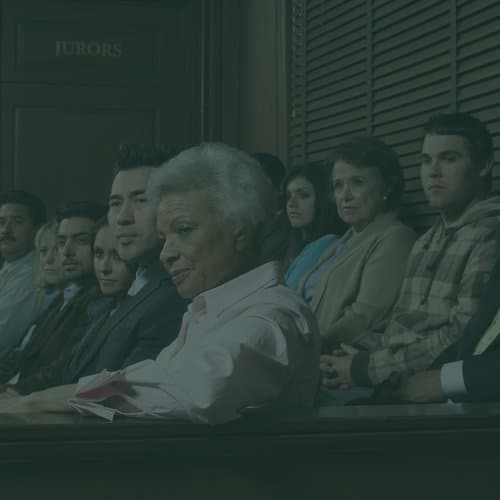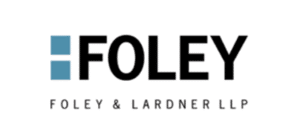
Mock Trials
A Mock Trial is a single or multi-day trial simulation where lawyers present the case to mock jurors who are demographically representative of jury-eligible residents from the trial venue. Trial graphics are utilized, when appropriate, throughout the proceedings. Following the case presentation, jurors are given abbreviated jury instructions, complete questionnaires and are divided into jury panels, with each panel deliberating to a verdict. The primary research objective of a mock trial is to assess how a jury will likely decide the case (i.e., verdict outcome and associated damages, if applicable). Other research objectives include examining jury receptivity to openings and closings, assessing how jurors evaluate the credibility and likeability of witnesses as well as the persuasiveness of their testimony and providing lawyers with an opportunity to rehearse their case in front of a jury while assessing jury reaction to attorney presentation style. Because the results of a mock trial are often a significant factor when deciding whether or not to proceed to trial, it is typically recommended that a focus group be conducted beforehand so that the optimum case strategy is being presented during the mock trial for testing.

FOCUS GROUPS
A Focus Group is an informative research method for thoroughly examining how a jury will likely perceive the case issues. In a focus group, mock jurors who are demographically representative of jury-eligible residents from the trial venue are presented a narrative of each party’s case. The case narratives are argumentative and typically accompanied by the presentation of trial graphics. The mock jurors complete questionnaires and are divided into smaller groups where jury consultants facilitate group discussions to obtain in-depth reactions and feedback. Examples of research objectives that would warrant a focus group include identifying case themes, uncovering the case “story” that jurors craft to reconcile conflicting accounts presented by the parties, measuring the strength of case arguments and the importance of case facts, identifying areas of juror misunderstanding and confusion, evaluating juror receptivity to trial graphics and identifying additional areas of the case that would benefit from trial graphics. While case outcome (i.e., verdict and damages) may be assessed in a focus group, it is secondary in importance to the research objectives described above.

WITNESS PREP
Jury research studies have consistently shown that jurors’ evaluation of witness testimony is one of the single biggest factors affecting their decision-making. No matter how strong your case may be on its merits, a poor case outcome is almost guaranteed if your key witnesses are not viewed as credible in the eyes of jurors. Empirical Creative’s witness preparation consulting is customized based on the particular needs of the witness and employs empirically-validated techniques, ranging from clinical interventions to communication-skills building, to enhance a witness’ credibility. When possible, witness preparation culminates in a Witness Evaluation session in front of mock jurors to habituate them to the anxiety of testifying in front of a group of people. The end result is a witness who can clearly and credibly communicate testimony that advances the story of your case, while withstanding the rigors of cross-examination.

JURY SELECTION
Empirical Creative provides Jury Selection & Voir Dire consultation. Our approach focuses on uncovering factors, such as life experiences and case-specific attitudes that are key in predisposing people to view your case either favorably or unfavorably, and then creating voir dire questions that reveal these characteristics in a strategic manner during jury selection so that intelligent strikes can be made. Preferably, this consultation is built on the prior jury research we have conducted on your case as it provides us with an empirical method for garnering this information. In addition, Empirical Creative consults on constructing supplemental jury questionnaires, and can be present on-site during jury selection to monitor juror responses and rank order the prospective jurors with respect to their desirability.

JUDGE & Arbitration RESEARCH
Empirical Creative conducts Judge & Arbitration Research. Like jury research, these studies can satisfy a range of research objectives, such has examining how the triers of fact will most likely view the merits of the case, identifying and testing case themes, evaluating the strength of arguments and the importance of case facts, witness evaluation, examining receptivity to openings and closings, evaluating potential graphics, etc. The research design for Judge & Arbitration research is highly customized (e.g., extent of deliberations versus facilitated discussion with a moderator; extent of witness questioning, etc.), and is contingent on the research objectives of the client.
“When it comes to working with trial consultants on the complex matters I litigate, I need to feel confident that the consulting firm I choose will do what it takes to truly understand my case’s core issues and facts. The folks at Empirical Creative have proven to me that they will do the hard work necessary to come in prepared and ready. Their strategic thinking is top-notch, and they have a knack for drilling down to the heart of the matters when it comes to trial strategy and graphics development. They are 100% committed to winning, and make me feel that my case is the most important matter on their minds. The fact that they are also a down to earth group of people is a big plus.”

